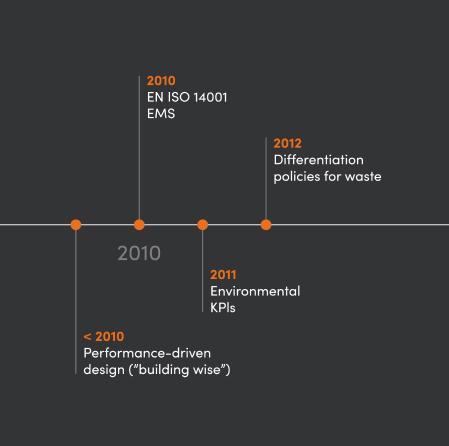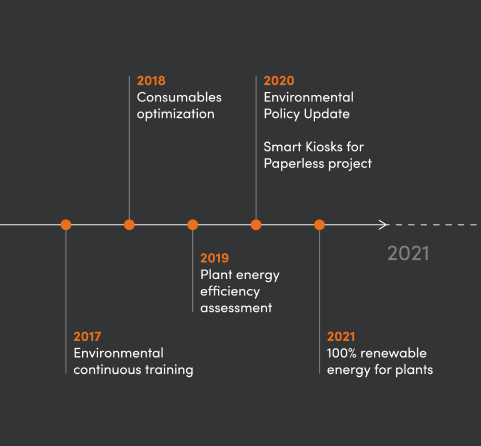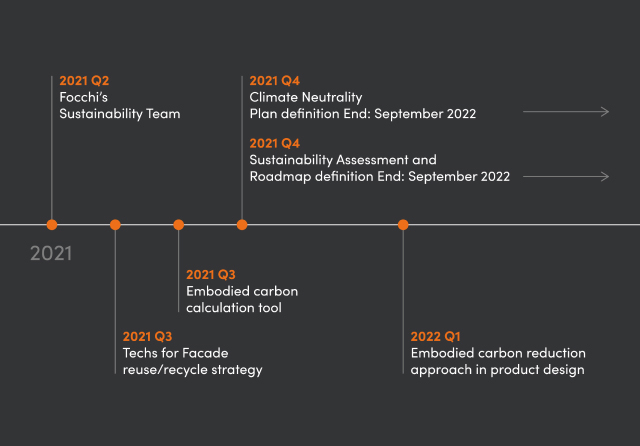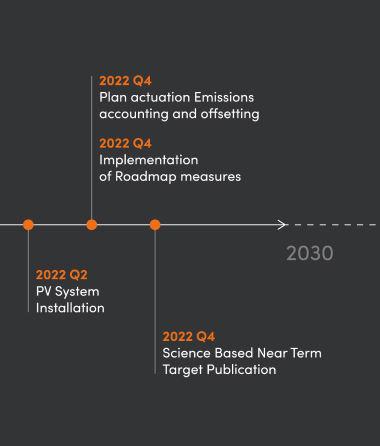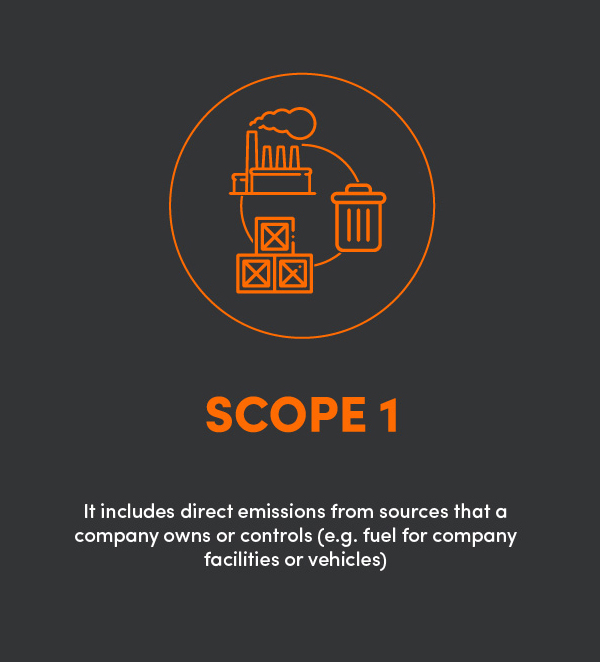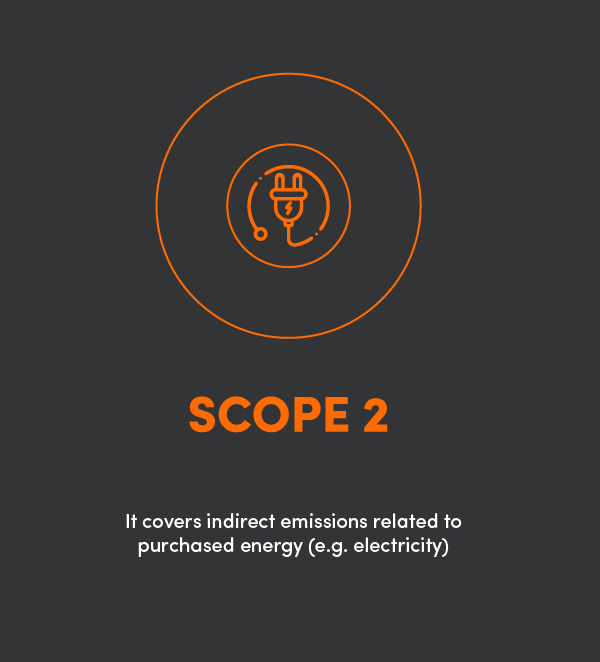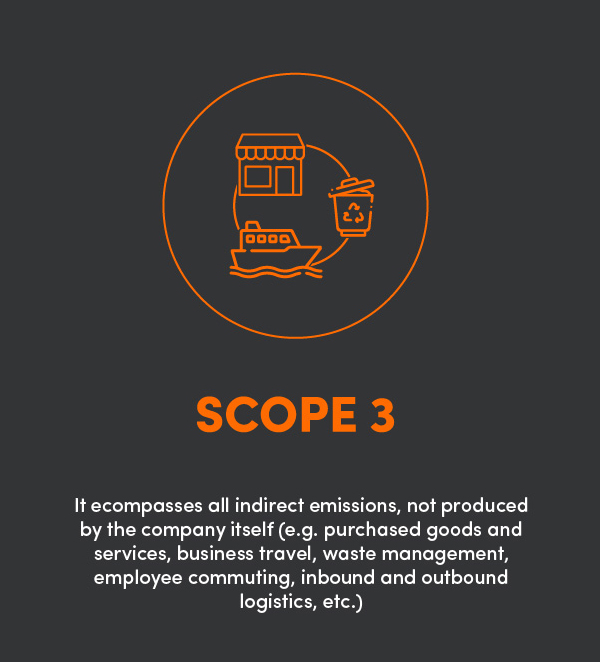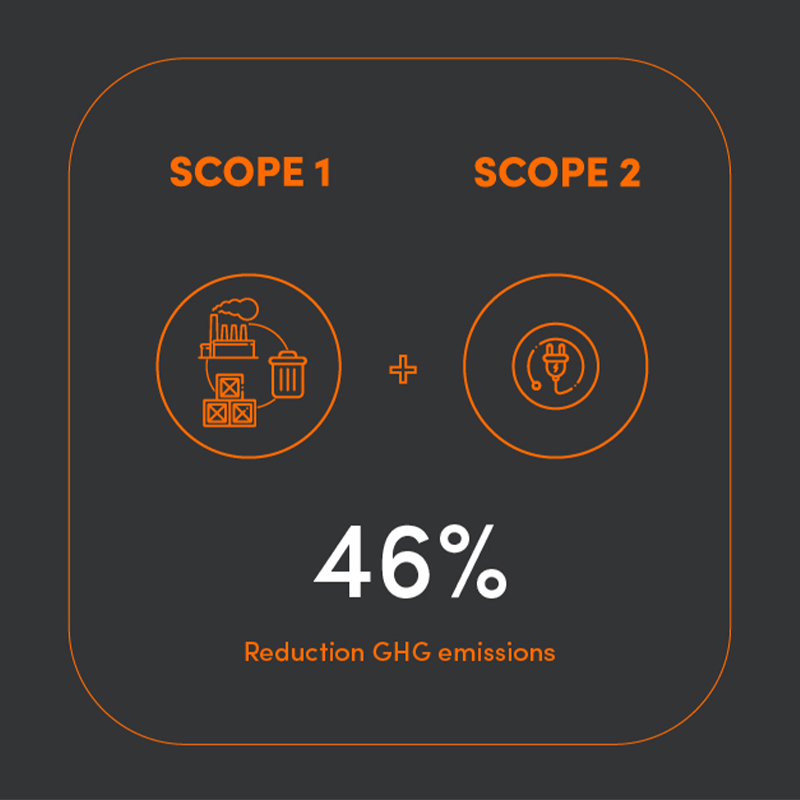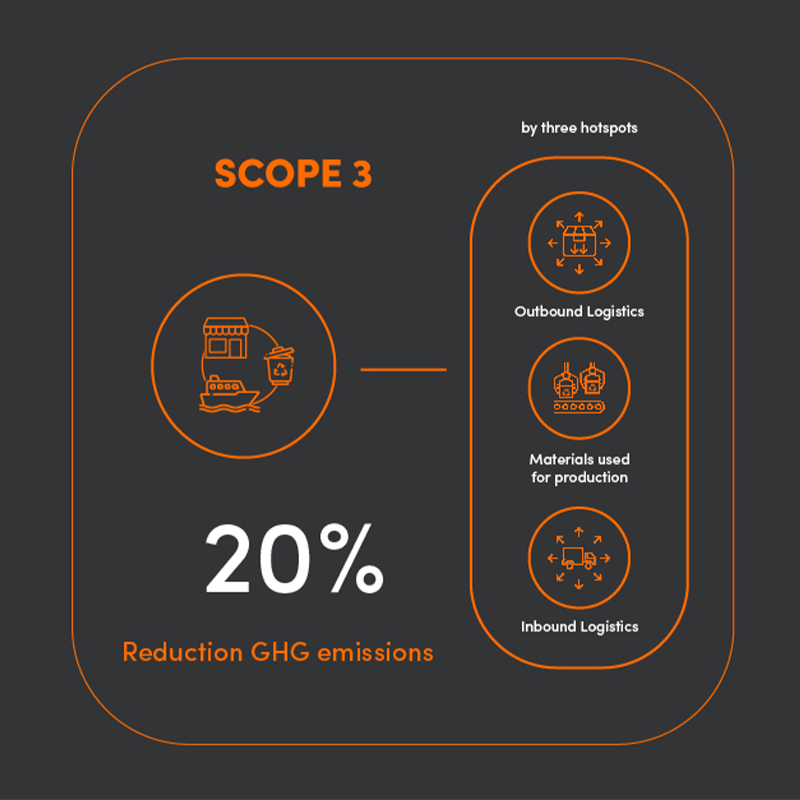
Building and construction sector plays an important role in climate change, accounting for 37% of energy and process-related global carbon emissions.
Our extensive experience in bespoke facade solutions allowed us to become one of the current major players in the market. We are conscious of shaping cities’ skyline, but we are also aware of the environmental impact that our business has.
Reductions of greenhouse gas emissions can be achieved by developing policies and actions that face the whole lifecycle emissions of buildings, from the production of building materials, their assembly, distribution, installation on site, to the disposal of waste.
For this reason, in Focchi, we recognise our responsibility and we work in order to find more sustainable solutions.
Nowadays, companies and people are increasingly aware of climate change, thus sustainability has become a popular topic. Since there is a lack of clarity on the terminology, words are not used in a proper way. Terms like carbon neutrality or net-zero have become interchangeable, misleading people.
It refers to the balance between emitting carbon and absorbing carbon emissions from carbon sinks, anything that absorbs more carbon than it emits (e.g. forests, soils, ocean). To become carbon-neutral, companies have to reduce their carbon emissions to net-zero or balance them through offsetting and the acquisition of carbon credits.
Net zero has a science based approach and it sets a minimum target for carbon reduction through improvement actions. Net-zero carbon means no carbon was emitted from the beginning, so no carbon needs to be balanced. For example, a company using only solar energy, or using zero fossil fuels can label its energy as “zero carbon”.
In the last few years, the concept of net-zero has become more popular and companies respond by setting their own net-zero targets. In some cases, these reduction targets are not science based, but they follow a sustainable global trend. This creates a lack of understanding and misrepresentation on such a relevant topic. At Focchi, we are focused on enhancing our environmental impact, avoiding all forms of greenwashing.
A company’s carbon emissions can be allocated across the following emission scopes:
As a first step of tangible engagement, we have set a Science Based Near Term Target, committing to reduce scope 1 and scope 2 of greenhouse gas emissions by 46% by 2030 compared to 2019.
However, we are committed to monitor and reduce scope 3 through progressive steps. As a consequence, in 2021 we have assessed our scope 3 emissions and have identified three hotspots that we will control with the aim to reduce their emissions by 20% by 2030 through a specific plan.
The three hotspots are:
- materials used for production,
- outbound logistic,
- inbound logistic.


